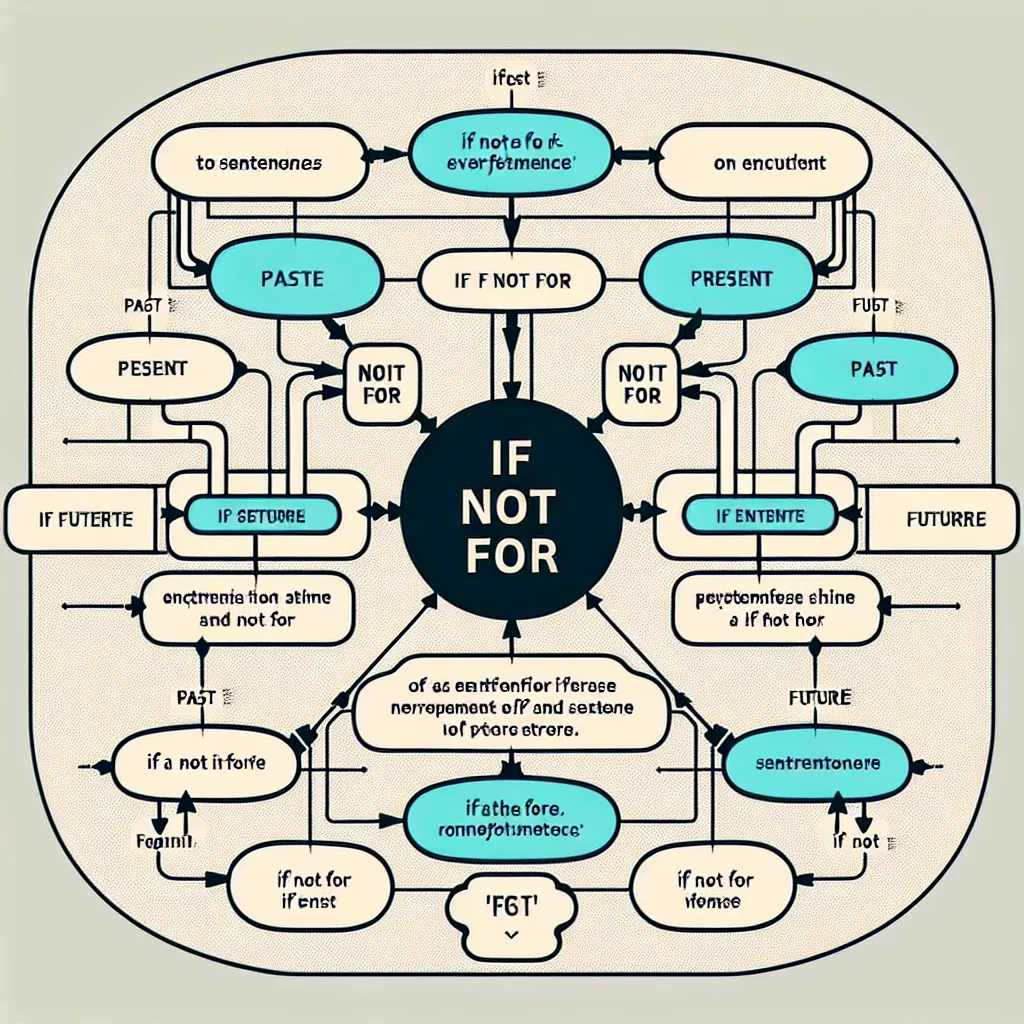The phrase “if not for” is a powerful conditional expression that can elevate your English writing and speaking, particularly in the IELTS exam. This structure is commonly used to express gratitude or to speculate about alternative outcomes. Let’s dive into how you can effectively use “if not for” sentences to boost your IELTS score.
Understanding “If Not For” Sentences
“If not for” is essentially a shortened version of “if it were not for” or “if it had not been for.” This structure is used to introduce a condition that prevented something else from happening or to express gratitude for someone or something.

Grammar and Usage
The basic structure of an “if not for” sentence is:
If not for + noun/noun phrase, + result clause
Examples:
- If not for the rain, we would have gone to the beach.
- If not for your help, I wouldn’t have passed the exam.
- If not for the traffic jam, I would have arrived on time.
In these examples, the phrase “if not for” introduces a condition (rain, help, traffic jam) that affected the outcome described in the result clause.
Applying “If Not For” in IELTS Writing
Using “if not for” sentences can demonstrate a high level of grammar proficiency in your IELTS Writing task. Here’s how you can incorporate this structure effectively:
Task 2 Essay Writing
In Task 2, you can use “if not for” to discuss hypothetical situations or to provide contrasting ideas. For example:
“Many argue that global warming is an insurmountable problem. However, if not for the efforts of environmental activists and forward-thinking policymakers, we would be facing an even more dire situation today.”
Task 1 Report Writing
While less common in Task 1, you can still use this structure to explain data or trends:
“The company’s profits would have declined significantly if not for the introduction of a new product line in Q3, which boosted sales by 30%.”
Enhancing IELTS Speaking with “If Not For”
In the Speaking test, using “if not for” can showcase your ability to express complex ideas fluently:
Part 2 (Cue Card)
When describing a person who has influenced you:
“I’d like to talk about my high school math teacher. If not for her encouragement and innovative teaching methods, I might never have developed a passion for mathematics.”
Part 3 (Discussion)
When discussing societal issues:
“The problem of plastic pollution in our oceans would be much worse if not for the recent bans on single-use plastics in many countries.”
Advanced Usage for Higher Band Scores
To aim for Band 7 and above, consider these more sophisticated applications:
-
Combining with other conditionals:
“If not for the economic downturn, the government would have implemented the new education policy, which could have transformed our school system.” -
Using in passive constructions:
“The endangered species would have been extinct if not for the conservation efforts initiated by local communities.” -
Incorporating into complex sentences:
“While technological advancements have improved productivity, if not for the human element in customer service, many businesses would struggle to maintain client satisfaction.”
Common Mistakes to Avoid
Be aware of these errors that IELTS candidates often make:
-
Incorrect tense agreement:
Incorrect: “If not for the rain, we will go to the beach.”
Correct: “If not for the rain, we would have gone to the beach.” -
Mixing up “if not for” and “if it wasn’t for”:
While both are correct, consistency is key. Stick to one form throughout your essay or speech. -
Overuse:
While “if not for” is impressive, using it too frequently can seem forced. Aim for 1-2 uses per essay or speaking section.
Conclusion
Mastering “if not for” sentences can significantly enhance your IELTS performance. Practice incorporating this structure into your writing and speaking to express gratitude, discuss hypothetical situations, and demonstrate a sophisticated command of English grammar. Remember to use it judiciously and always ensure proper tense agreement. With these tips, you’ll be well-equipped to tackle any IELTS task that might benefit from this versatile grammatical structure.